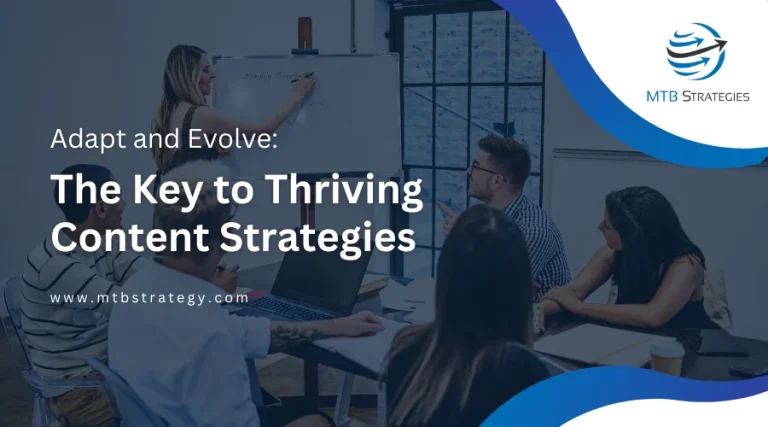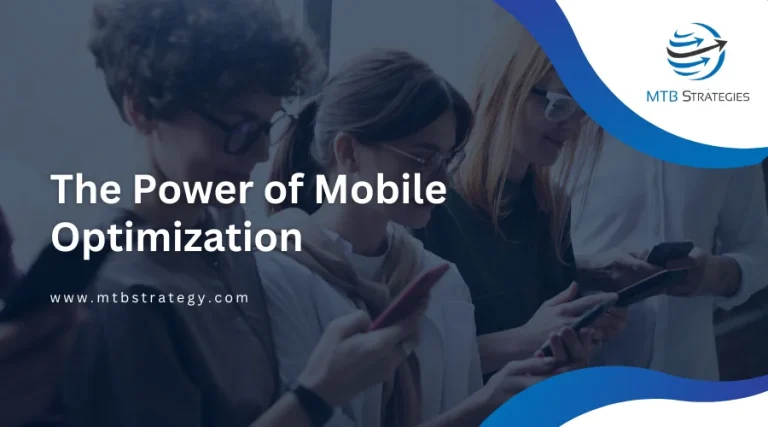In the busy digital world, where every website wants attention, it’s important to stand out. That’s where Search Engine Optimization (SEO) comes in. But what exactly is SEO, and how can you make sure your content gets noticed and liked?
Let’s explore SEO together, understand its tricks, and learn how to be good at it. Thrive with Digital Solutions: We support businesses at every level, employing proven techniques like our MTB Strategy to drive success.
What Does Optimized for SEO Mean?
Optimizing for SEO means making many little changes to your website and what you write to create search engines such as Yahoo, Bing, and Google. It’s not just about technical stuff; it’s like a mix of being creative and smart.
You’re trying to get higher on the list when people search for things online. To do this, you need to look at everything on your website, from what you write to how it’s set up, and ensure it’s all working together in a way that search engines like.
How Do I Optimize My SEO Links?
Optimizing SEO links is pivotal for improving your website’s visibility and authority. Here’s how you can do it effectively:
- Anchor Text Optimization: Use descriptive anchor text that includes relevant keywords. This enhances user experience and aids search engines in comprehending the context of your content.
- Internal Linking: Carefully connect pages on your website to establish a hierarchical structure and distribute link equity. This boosts crawlability and ensures that all your pages are indexed efficiently.
- External Linking: Incorporate authoritative external links from reputable sources to enhance credibility and demonstrate expertise in your niche. However, ensure relevance and authenticity to avoid penalties.
- Broken Link Rectification: Regularly audit your website for broken links and fix them promptly. Broken links hinder user experience and negatively affect your SEO performance.
- Link Building: Engage in ethical link-building practices to acquire backlinks from high-quality websites. Guest blogging, influencer collaborations, and content partnerships effectively augment your link profile.
Why Is SEO Important?
SEO serves as the cornerstone of your digital marketing strategy for several reasons:
- Enhanced Visibility: By optimizing your website for SEO, You increase the likelihood that it will appear prominently in search results, thereby driving natural traffic.
- Credibility and Trust: websites with a higher ranking in SERPs are often more reliable and trustworthy in users’ eyes, which increases click-through rates and conversions.
- Cost-Effectiveness: Unlike paid advertising, SEO offers long-term benefits without incurring ongoing expenses. Once you establish a strong SEO foundation, you can enjoy sustained traffic and leads without significant investment.
- Competitive Advantage: Outranking your competitors can make a substantial difference in today’s competitive landscape. SEO empowers you to surpass your rivals and capture a larger market share.
Incorporating SEO Best Practices
To optimize your content for SEO, adhere to these best practices:
- Relevant Keywords: Conduct thorough keyword research to identify appropriate vocabulary that complements your content and target audience. Integrate these keywords naturally into your titles, headings, and body text for maximum impact.
- Meta Descriptions: Craft compelling meta descriptions that summarize your content and entice users to click. Incorporate relevant keywords while maintaining readability and relevance.
- Alt Text for Images: Optimize image alt text with descriptive keywords to improve accessibility and facilitate the comprehension of the visual material by search engines of your website.
5 Steps to Practice to Optimize SEO
- Conduct a comprehensive SEO audit to Determine what needs improvement and create a customized optimization plan.
- Create high-quality, engaging material that incorporates pertinent keywords. This naturally addresses the requirements and preferences of your intended audience.
- Optimize your website’s technical aspects, including site speed, mobile responsiveness, and URL structure, to enhance user experience and search engine crawlability.
- Build a robust backlink profile through ethical link-building tactics and cultivate relationships with authoritative websites in your industry.
- Monitor your SEO performance regularly using analytics tools and modify your plan in light of new information to maintain and improve your rankings over time.
In today’s fast-changing online world, mastering SEO isn’t just important—it’s essential for businesses and people who create content. You can make the most of your online presence by understanding how SEO works, following the best ways to do it, and always trying to improve.
Remember, SEO isn’t just about getting to the top of search results; it’s about giving your audience what they need and building long-lasting relationships. So, embrace SEO and start on a journey to make your online space more successful than ever before.





